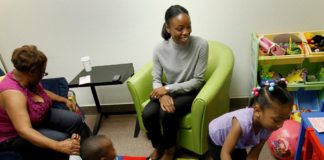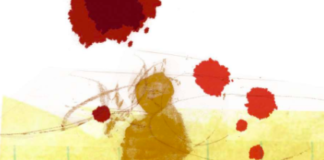Tag: ACEs
The Fallacy of Modern Psychiatry: Treating Symptoms, Ignoring Causes
To truly understand a person’s actions and behaviors, one must ask: What was this person exposed to? What did they experience?
Smoke ‘Em if You Got ‘Em: Rethinking Smoking as a Trauma...
For people with trauma-impacted brains, smoking is a tool to quiet an ever-present storm.
Interview: The Need for Trauma-Informed Schools
CTIPP Executive Director Jesse Kohler answers our questions about the organization's new report and what the findings mean for families and communities.
Congress Holds Historic Hearing on Childhood Trauma
On July 11, the House Committee on Oversight and Reform held its first-ever hearing on childhood trauma, featuring emotional testimony from survivor witnesses, as well as a number of prominent public health experts and government officials.
Bipartisan “RISE from Trauma Act” Introduced to Address Childhood Trauma in...
The Resilience Investment, Support, and Expansion (RISE) From Trauma Act, legislation designed to increase support for children who have been exposed to Adverse Childhood Experiences, includes $50 million in funding for a “mental health in schools” program. Exactly what these programs would entail remains unclear.
Adverse Childhood Experiences: When Will the Lessons of the ACE Study...
The ACE study tells of how adverse childhood experiences increase the risk of psychological and physical problems in adulthood. When will we start incorporating these findings into public health policy and medical care?
Treating the Lifelong Harm of Childhood Trauma
From The New York Times: Dr. Nadine Burke Harris, who has emerged as one of the country's strongest voices calling for a national public health...
The Demographics of Childhood Trauma
From Pacific Standard: A new study records the prevalence of several different Adverse Childhood Experiences (ACEs) as well as the demographic groups who are most likely to experience childhood trauma.
"The most prevalent...
Should We Screen for Adverse Childhood Experiences?
One author outlines the foundations of Adverse Childhood Experiences (ACEs) research, addressing its dimensions, limitations, and potential future directions.
Coping With Trauma in the Classroom
From the Stamford Advocate: Increasing numbers of students have been affected by trauma; almost half of American adolescents have experienced an adverse childhood event. It...
Four-Part Series on Drug Abuse, Trauma, and How to Heal It
In this four-part series on drug abuse and trauma, Parents Opposed to Pot provides an overview of the impact of adverse childhood experiences, how they persist, and...
Exploring Psychiatry’s “Black Hole”: The International Institute on Psychiatric Drug Withdrawal
When Carina Håkansson sent out an invitation for a symposium on "Pharmaceuticals: Risks and Alternatives," some of the world's top scientists, along with experts-by-experience, came from 13 countries to explore better ways to respond to people in crisis.
What Would a Trauma-Informed Society Look Like?
Imagine if we, as a society, started recognizing trauma, pain, grief, fear, the need for connection and understanding, and oppression without defensiveness or denial. What if, hypothetically, we saw the signs in people who were "defiant," "withdrawn," "oppositional," "depressed," "manic," or otherwise as desperate pleas to have their needs met, and stopped telling them they were sick for doing so? What would a society that actually encouraged expression of emotion, compassion, and empathy look like?
What if ACEs (Adverse Childhood Events) Were the Basis of Mental...
What would happen if the mental health system fully recognized the pervasive and profound impacts of trauma on their clients? How might a deeper appreciation of the multi-faceted sequelae of childhood maltreatment and toxic stressors reshape mental health services? While the implementation of trauma-informed care in mental health programs has made significant inroads, the dominant bio-reductionist model continues to constrain and undermine progress.





















